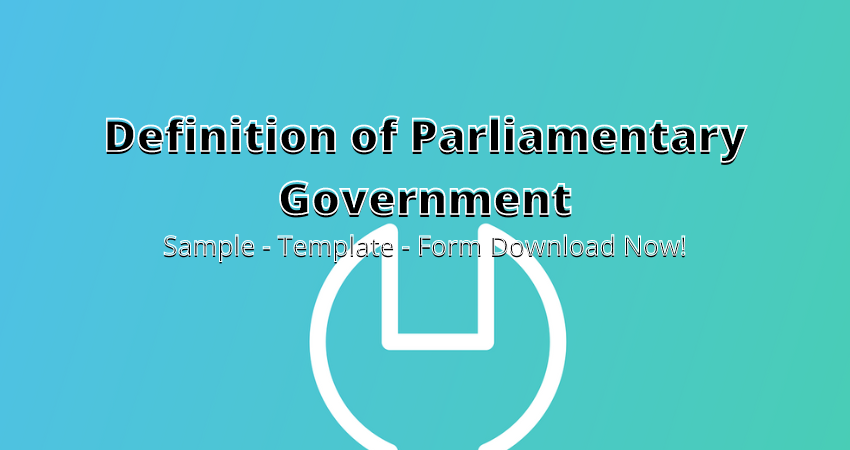
Definition of Parliamentary Government ⏬👇
Are you looking for definition of parliamentary government? So You are at the right page. You can find what the parliamentary government is. Parliamentary government is a form of government in which the cabinet ministers are responsible to the parliament. It is a form of representative democracy, meaning that public officials are chosen by the people.
Parliamentary governments usually have parties or political blocs whose members vote together on legislation and other matters. The power of parliament is vested in the House of Commons. The Prime Minister is the most senior minister, first among equals in Cabinet, and heads their meetings. He or she also leads it in Parliament, acting as an official spokesperson for Her Majesty’s Government.
Parliamentary government is one of the three predominant systems of government, the other two being presidential and judicial.In parliamentary governments, the executive branch is dependent upon the legislative branch for its existence, while the reverse is not true. With the exception of some Westminster system Parliaments, such as that of the United Kingdom, parliaments are formally divided into separate houses, in which different parties have differing strengths. The head of state for most parliamentary governments is usually a distinct person or entity from the head of state for non-parliamentary governments.
Members of a Parliament
Members of a Parliament are elected by voters within the borders of their country. They change with every election, and each member represents a specific region, called a constituency. When countries have a Parliament, it is made up of representatives from those constituencies.
Members of a Parliament are representatives of the people, who are elected as Members of Parliament (also known as MPs) in at general elections on fixed dates in every four years. They can be voted out by the people at each election if they don’t do well enough. If a member needs to take time away from the House of Commons, a member can be appointed in their place until the next election. MPs plan and make laws, representing backbenchers and lobbies that exist in their ridings; this helps create better policies for Canadians. In a parliament, the members are called representatives, senators or delegates. In a municipal council, they are called councillors or aldermen.



